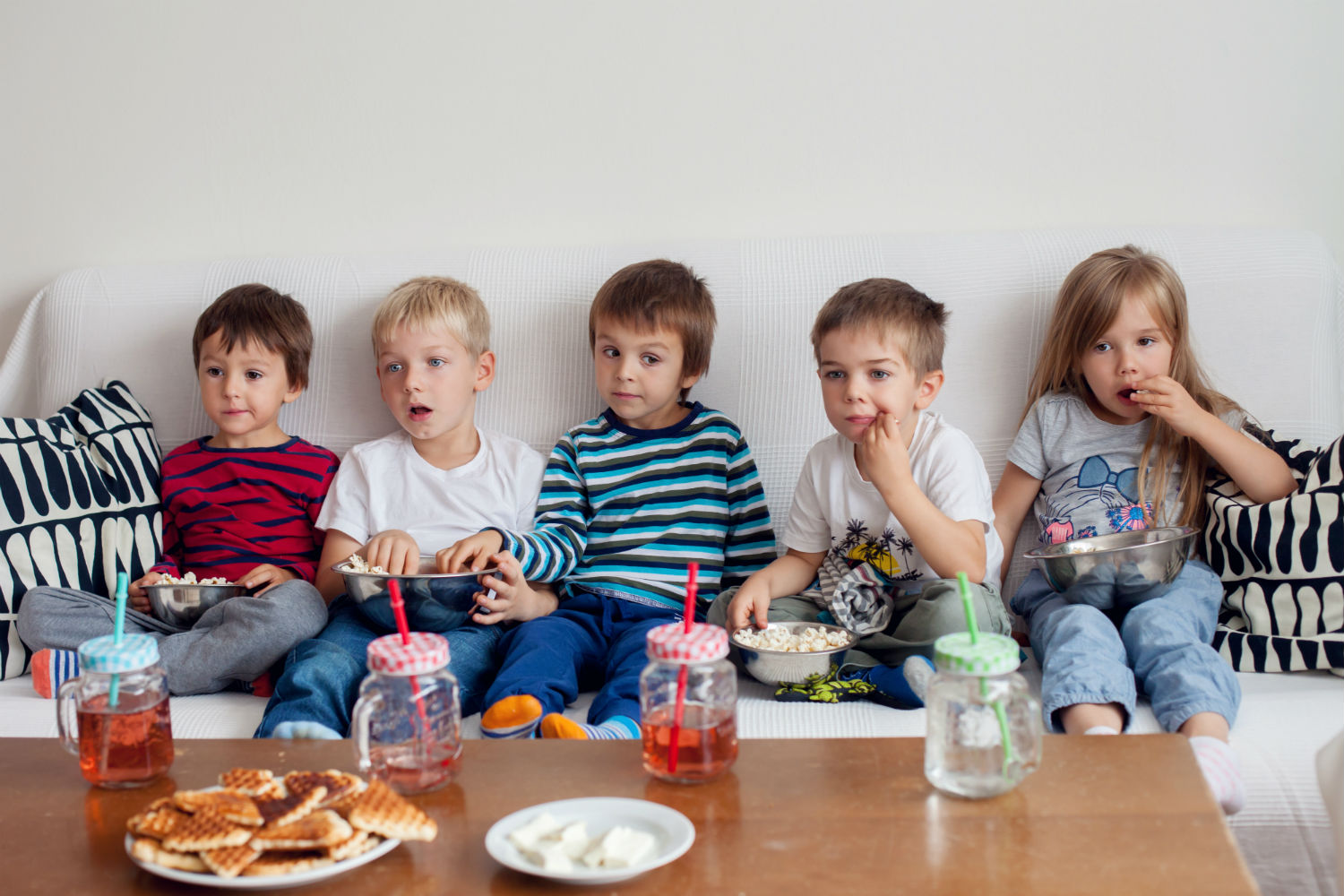Part of the Food Policy Snapshot Series
Food Policy: Food Advertising Restrictions for Youth
Overview: The South Korean government passed the Special Act on Safety Management of Children’s Dietary Life that adds restrictions to TV advertising of energy-dense, nutrient-poor (EDNP) food and beverages. The act banned TV advertisements on specific food categories during children’s prime time viewing. The law also banned gratuitous incentives when advertising children’s foods on TV, radio, and internet (such as offering free toys or gifts with the purchase of nutritionally inadequate foods).
Location: South Korea
- Population: 49 million (CIA world factbook, 2015)
Progress to date:
- After the implementation of a South Korean regulation on advertising to children in January 2010, all indicators (the total advertising budget and number of ad placements) decreased for EDNP food products during all hours and during regulated hours (5:00p.m.–7:00 p.m.).
- Gross Rating Points [GRP: measures advertising impact) for EDNP foods fell 57% across all hours and 82% in restricted hours
Food policy category: Food Supply and Distribution; Social and Economic Equity
Program Initiated: 2008
- The South Korean government passed the Special Act on Safety Management of Children’s Dietary Life in 2008
- Special Act stipulated that TV advertising of EDNP foods would be restricted beginning 1 January 2010. Initially stated that the ban on advertisements would last from 5-9pm.
- The scheduled start date was postponed due to industry resistance. It finally went into effect in September 2010 under a 3-year sunset provision, banning advertisements from 5-7pm.
- Three year provision considered successful and the policy continues today
Program goals:
- To improve the health and well-being of South Korean citizens, especially children and youth
- To reduce the social power and prevalence of nutritionally inadequate foods and food distributors
- To encourage healthy eating habits among all South Korean residents; to support nutrition by reducing prevalence of EDNP foods
How it works:
- Foods subject to regulation mainly include food products favored by children as snack or meal substitutes that do not satisfy the nutritional standards of Korean Food & Drug Administration
- The KFDA developed standards to categorize food products as “high-low snack food preferred by children” or “high-low meal substitute preferred by children.”
- During the hours of 5-7pm these EDNP food ads are banned from being advertised.
- Even during other viewing hours, TV advertising of EDNP foods are banned during commercial breaks of children’s TV programs
- Advertisements for “bait products” that promote free gifts are also banned. Advertising a free gift, toy or other product designed to persuade children to buy nutritionally inadequate foods is prohibited on mass media outlets such as TV, radio, and the internet.
Why it is important:
- This policy encourages a culture of healthy eating by downplaying the prevalence and acceptability of a culture of EDNP foods and beverages
- This policy demonstrates that the South Korean government is prioritizing health and nutrition for all residents.
- This program has the power to improve access to healthy and nutritious foods by allowing those markets to advertise where and when EDNP foods cannot.
Evaluation:
- In comparing TV advertisements of EDNP foods aired on the five major TV channels (KBS2, MBC, SBS, EBS and Tooniverse) before and after the regulation’s implementation, the total advertising budget, number of advertisement placements, and GRPs decreased significantly during both regulated and nonregulated hours.
- A study found that the total advertising budget of EDNP food and drink companies decreased by 31%, (from $9.583 million in 2009 to $6.566 million in 2010). The number of advertisement placements dropped by 58%.
Learn more:
- Pilot Phase Impact Assessment: https://heapro.oxfordjournals.org/content/28/1/17.full
- Korean Food and Drug Administration Assessment: https://www.researchgate.net/publication/227708993_Restriction_of_television_food_advertising_in_South_Korea_Impact_on_advertising_of_food_companies
Additional Information:
- Food or beverages are considered “high-low snack food preferred by children” if they meet any of the following criteria (per serving size):
- More than 250 calories and less than 2g of protein
- More than 4g of saturated fat and less than 2g of protein
- More than 17g of sugars and less than 2g of protein
- More than 500 calories, 8g of saturated fat, or 34g of sugars
- Food or beverages are considered a “high-low meal substitute preferred by children” if :
- More than 500 calories and less than 9g of protein
- More than 4g of saturated fat and less than 9g of protein
- More than 4g of saturated fat and more than 600mg of sodium
- More than 500 calories and more than 600mg of sodium
- More than 1,000 calories or more than 8g of saturated fat
Point of Contact:
- Korea Food and Drug Administration
- Email: kfdacall@korea.kr
- Korean National Health & Nutrition Examination Survey:
- Email: KNHANES@korea.kr
Similar practices:
- Iran
- Broadcast advertising of soft drinks has been prohibited since 2004. In 2014, the Ministry of Health and Medical Education decided to expand advertising ban efforts and prepared a list of 24 food items to be prohibited from advertising in all media.
- Chile
- Foods and drinks high in calories, saturated fat, sugar and sodium content are banned from being advertised directly towards children under the age of 14.
- The ban applies to advertising targeted to children (TV or websites); programs with an audience of greater than 20% children; commercial breaks before, during, or after these shows; and advertisements that use cartoons, animations, or toys in their design to advertise a food or drink. The ban’s scheduled to take effect 1 July 2016.
- United Kingdom
- Advertising and product placement of foods high in fats, sugars and salt (defined by a nutrient profiling model) is prohibited during TV and radio programmes that have 20% or more viewers under 16 years old relative to the general viewing population.
References:
- https://kimchang.com/UserFiles/files/UpdateMagazine%28May-June2010%29.pdf
- https://www.paho.org/nutricionydesarrollo/wp-content/uploads/2013/07/Advertising-of-food-and-beverages-products-to-children.pdf
- https://www.wcrf.org/int/policy/nourishing-framework/restrict-food-marketing
- https://www.ncbi.nlm.nih.gov/pubmed/24221528


